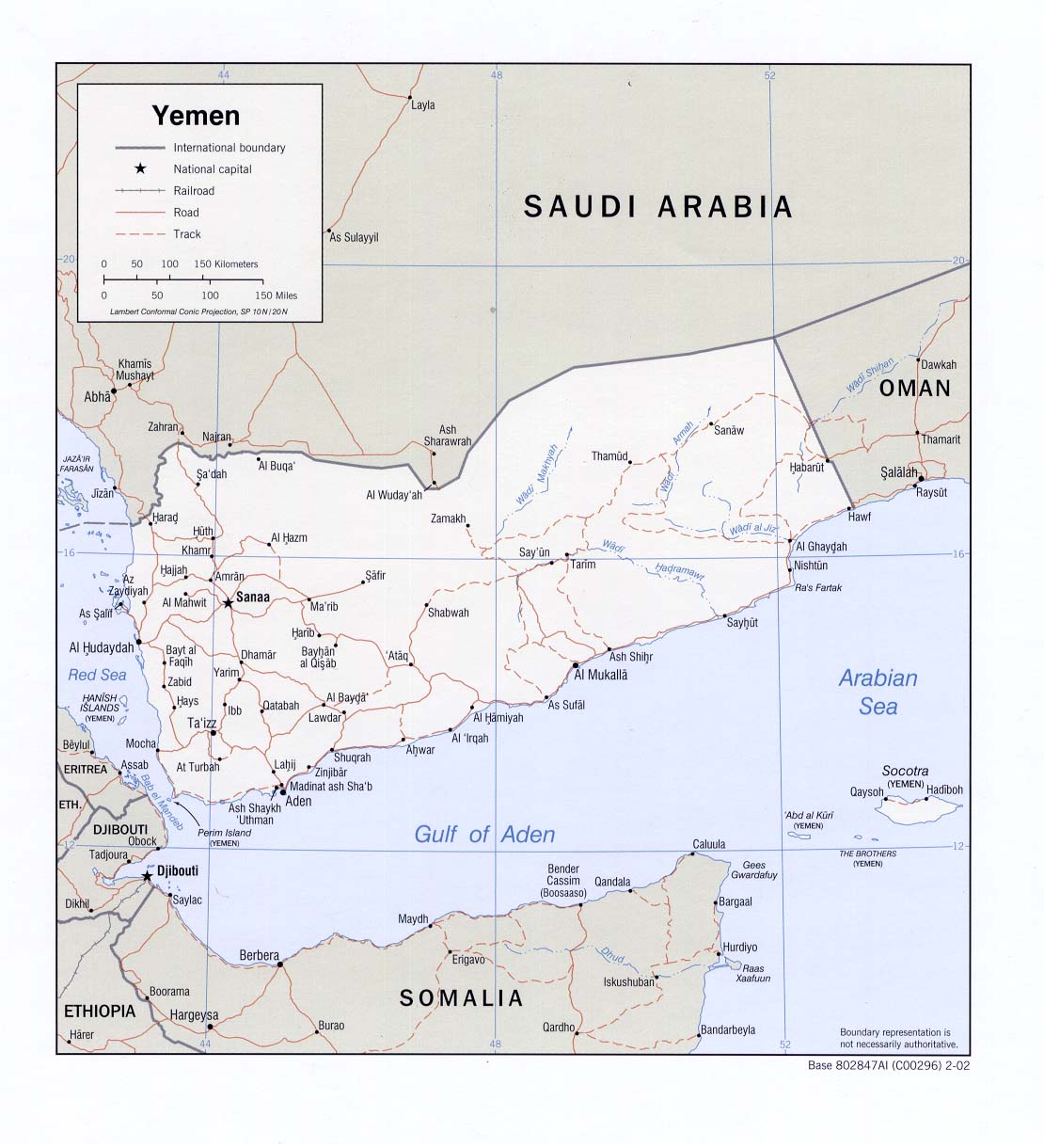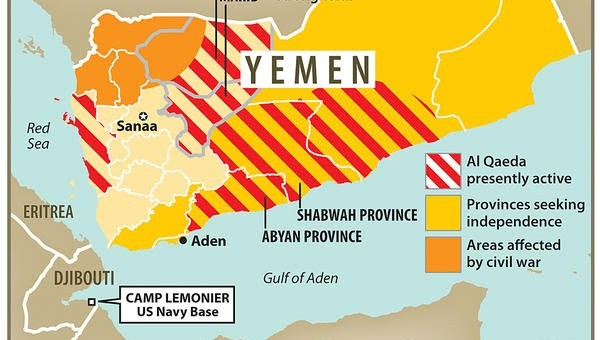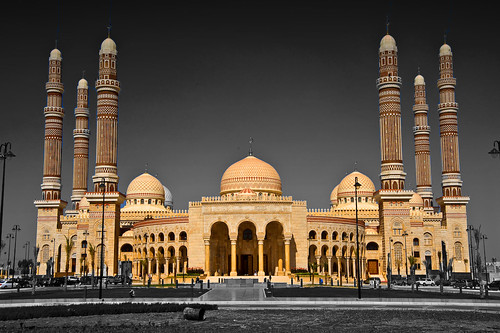Before we jump into specific content, I want to plug The Economist. In a single newsweekly, I can usually find 15-20 ideas that can be converted into campaign content. I find that the best sections for this are The World This Week (specifically the politics), the Leaders, the weekly Briefing topic, the International News, the Science and technology (especially for developing spells and magic items), Books and Arts, and the Obituary (for developing NPCs). The regionally focused news sections (US, Asia, Europe, etc.) are hit-or-miss and the finance section usually isn't worth perusing. If there's a Technology Quarterly, you've hit pure gold.
I often get campaign ideas when I listen to NPR on my way into work in the morning. There was an excellent piece about South Sudan that went a long way towards helping me get ideas for how my homebrew setting should be set up. Stories from last year about the abductions from Nigerian orphanages inspired this adventure about the same topic.
The main topic in the news these days is Yemen. First of all, let's get one thing out there--what's happening in Yemen right now is terrible and a tragedy. Civil wars are destructive to life and to property and should in no way be celebrated. But, RPGs are about creating opportunities for player characters to shine and to be heroes. Absent a great tragedy, there's little for heroes to redeem. So, the fact that the situation in Yemen is so tragic creates the opportunities to design a setting where the heroes have some wrongs to right. We're going to go paragraph by paragraph through an NPR story from March 25 to talk about how we can flesh out our setting with inspiration from the real world.
Let's get started with a name. I'm going to call our fictional land Menas. Although Yemen is an area where you could draw on Islamic history for inspiration, I'm going to try and translate this into a traditional fantasy campaign. I'm not doing this because of any anti-Islamic bias (quite the opposite), but to show how easy it is to port these ideas into anything else you'd like. Also, here is a map of Yemen to make it easier to figure out what's where:
On to the news!
Saudi Arabia has begun airstrikes against Shiite rebels in neighboring Yemen. The Saudi ambassador to Washington announced the military action late today, saying the downfall of Yemen's government is not an option for his country. The ambassador also says the United States is not involved but has been consulted. The U.S. recently pulled out all of its personnel from Yemen, leaving it on the sidelines. NPR's Michele Kelemen reports.Thus far, we know a few things about our putative campaign setting. First of all, it has a powerful neighbor to the north, which we'll call Nulkavit. That neighbor is powerful enough to affect violence and change within the country itself. In fantasy terms, we could utilize spellcasters powerful enough to work magic miles and miles away (perhaps through an artifact?), flying fortresses from which troops and other weapons could be launched, or the ability to sneak forces deep within Menas. I'm going to go with the last option, but any of them are viable.
There are also rebels operating in Menas. We also know that those rebels are opposed by Nulkavit and that they are poised to accomplish regime change in Menas. The Nulkavii are invested enough in Menas (trade route? source of important natural resource? simply worried about border stability?) that they are willing to project military force to keep the current ruler in power. Is the current ruler a Nulkavii puppet? We don't know yet.
We also know that there's another country that was operating within Menas but has since pulled out. Trying to integrate the intense geopolitics of the modern United States into a fantasy setting could be done, but I think it's probably easier to conflate the roles of the U.S. and the Saudis/Nulkavii. Let's move on in the article...
NABEEL KHOURY: Essentially, even though Washington will be slow to recognize this fact, the state of Yemen has failed.This isn't useful to use for game planning terms except to note that "the state of Yemen has failed" is a good sign you've found an article with potential. Moving on...
Houthis have gained control of much of the country, chasing out the internationally recognized president. The former president and forces loyal to him are helping the Houthis for now. Add to this mix - al-Qaida in the Arabian Peninsula and ISIS, which claimed responsibility for deadly bombings in Yemen last week. The regional context makes this all the more complicated, according to Gregory Johnsen, who's written a book about Yemen and now contributes to BuzzFeed.We've already learned gobs more. First of all, our rebels have a name (in real life). In our campaign, let's call them the Hardan. The Hardan hail from the mountainous region in northwestern Menas. In fact, the Hardan are dwarves. Though Menas' capital, Donteen, is located in Hardan areas, the bulk of Menas' population hails from the coastal areas. Among the bulk of that population is Menas' current (former?) king, Rodrick I, who's recently had to flee Donteen because of the Hardan offensive.
Rodrick I is the First because he's the first of his line. He took over after the previous dynasty. The previous king, Sonthuk XII had trouble keeping the various Menasii peoples' interests balanced. Sonthuk hailed from the northeastern desert areas, which were once a separate kingdom that conquered both the areas populated by the Hardan and the coastal areas. To cement his conquest, Sonthuk adopted his enemies' former capital, Donteen. Rodrick Gevailes led the largest of the coastal tribes from his power base in Aden (I don't feel like changing its name).
After Sonthuk's conquest, he was more or less dealing with two rebellions: the conquered Hardan and tribes led by one of his former lieutenants in the desert slopes in Menas' northeast. Rodrick I was a loyal backer of Sonthuk in exchange for Sonthuk channelling the gold/spice/magical mineral trade south through Aden and other coastal cities, benefiting the merchants Rodrick ruled. Eventually, the rebellions gathered strength and destabilized the Nulkavit border. The Nulkavii invaded in force. It was a bloodbath made entirely of Menasi blood. Sonthuk sued for peace. The Nulkavii needed a new ruler for Menas and found one in Rodrick.
Now we know why the northern neighbor supports the current embattled king. We also know that there's a former king still active in the country. He still has forces loyal to him--the desert rebellion in the east was more over Sonthuk's original subjects repressed irridentism and anger over being denied spoils from the invasion. Today, Sonthuk has made peace with many of his former subjects. While he's not actively leading them in battle--that would violate the terms of his treaty with Nulkavit's Emperor and result in a new invasion--he exercises soft power over them in an attempt to portray himself as the only force that can stabilize Menas and rule it.
Thus far, our tensions have been racial and regional. Let's add some religious tension into the mix. We have two organizations, both of which have some similarities. Both chafe at secular rule and the more moderate parts of the religion that endorse secular rule. Both have had some experience in administering their lands, though they are exercising very little to no control over any Menasi territory, at least so far. One group is called the Scepter of the Kingfisher. They believe that the ancient ancestor of the Nulkavii Emperor (who once ruled Menas itself before his empire's power waned) slew the rightful heir to both secular and religious power in the land. The ancient emperor drowned his victim and a giant kingfisher was seen jumping out of the river when the event occurred--at least according to legend. The Scepter of the Kingfisher is a secret society working to undermine all types of secular leadership as well as religiously-blessed leadership through the Nulkavii Emperor. They're active mostly in the coastal cities.
There's also the Black Bola of [Insert deity name here]. This group is dedicated to religious rule only. However, they believe that religious rule should be direct without any human intermediary. Effectively, they are anarchists. It's unclear how they manage to get anything done. Unlike the Scepter of the Kingfisher, Black Bola cells tend to be more individually motivated. Rather than working under central power and direction, they tend to coalesce around a single, charismatic leader. They are the ones responsible for the recent explosions in the marketplaces of Aden, Donteen, and other cities, having struck a blow against the commerce that they (rightly) believe allows secular power to flourish.
GREGORY JOHNSEN: What we're seeing is that regional rivalries, particularly between Saudi Arabia and Iran, are being grafted onto this local domestic conflict. And when you put all of those different elements together, it really is a witch's brew.Now we have a second regional power. I'm tempted to place Barnan where modern day Oman is located. But, I like the idea of it being able to exercise power in Menas but without a direct border. Present day Oman remains an undefined quantity. Barnan actually lies to the east across the sea. Barnan is a major maritime power and a covert supporter of the Hardan uprising, though not necessarily of returning Sonthuk to the throne. I like making Barnan a maritime power allied with the Hardan because that teams an international maritime power with a domestic land-based power. On the other side of the coin, Menas's coastal cities are arguably a maritime power (we know they engage in a lot of trade, so let's go with either they have a navy or sufficiently weaponized merchant ships) and they are allied with the land power of Nulkavit. Finally, Barnan subscribes to the same religious beliefs as the Scepter of the Kingfisher (the only country in the area that has successfully challenged Nulkavii hegemony), and covertly funds their activities in Menas.
Now things are getting interesting. We've got three major ethnic groups in the country at loggerheads with each other and two contenders for political power. We've got two secret societies vying to destroy the government. They could be working together or they could be at each other's throats. We've also got two international powers willing to interfere in Menas' affairs, one militarily and one through more covert means. I'm also deciding that there's a merchant guild with membership across the coastal cities, the Liber Mare, that mixes politics and commerce and is a major driving force in the coastal cities' plans to dominate the Hadran to the north.
JOHNSEN: Yemen watcher Johnsen, who spoke to us before the Saudi announcement is worried that regional players could miscalculate and the U.S. doesn't have a lot of options to respond. It shuttered its embassy in February and just withdrew Special Forces.and
JOHNSEN: And the purpose of those advisors was to help coordinate drone strikes and other counterterrorism activities that the U.S. was carrying out in Yemen primarily directed against al-Qaida in the Arabian Peninsula. So those forces - those 125 individuals were evacuated last week. And today, the Houthis overran that base. And that was on their march south.I said that the U.S. was out, but I lied. At some point in time, another ethnic group, the Andarans (to borrow a name and a concept from another of my homebrews) lived in Menas. They were exceedingly powerful, utilizing magic beyond the reach of most living today with ease and without training. They built mighty cities and their civilization flourished. Unclear why they declined (maybe they started birthing today's PC races and that's why they've declined? maybe they lost the ability to procreate at all due to some magic disaster? maybe they were called away to another place? Insert fantasy trope of your choice here). Depending on how distant you want their exit to be, perhaps the last of the Andarans just now left Menas. Could be that people knew it was coming (and it was a big event) or maybe they just vanished? Maybe nobody knew they were here, but they were the last ones keeping any sort of stability and their exit is what sparked the current conflict? We know that they did exist and the Hadran rebels recently took one of their bases. Maybe they discovered a long-lost military installation? Maybe this Andaran military installation had been controlled by another group and the Hadrans wrested it from them.
Finally:
KELEMEN: As for U.S. counterterrorism efforts, Khoury says he expects the Obama administration to continue to launch drone strikes from outside the country.If you like the Andaran angle, keep this. Maybe the Andarans are a little more involved than we thought. Maybe they are marshalling their forces to return as scarier overlords than any of the other parties yet mentioned. Of course, if you don't like the Andaran angle, you can ignore it.
So, we have three countries:
Menas: Our country (Yemen)
Nulkavit: Empire to the north (Saudi)
Barnan: Country to the east (Iran)
Two main political factions:
Sonthuk: Former/deposed king (former president)
Rodrick: Current, but embattled, king
Three secret societies:
The Scepter of the Kingfisher
The Black Bolas of [insert deity name here]
Liber Mare
Three (Four? More?) Ethnic Groups:
Hadran dwarves
Coastal cities
Eastern desert dwellers
Various Barnanian people
Various Nulkavii people
Andarans





No comments:
Post a Comment